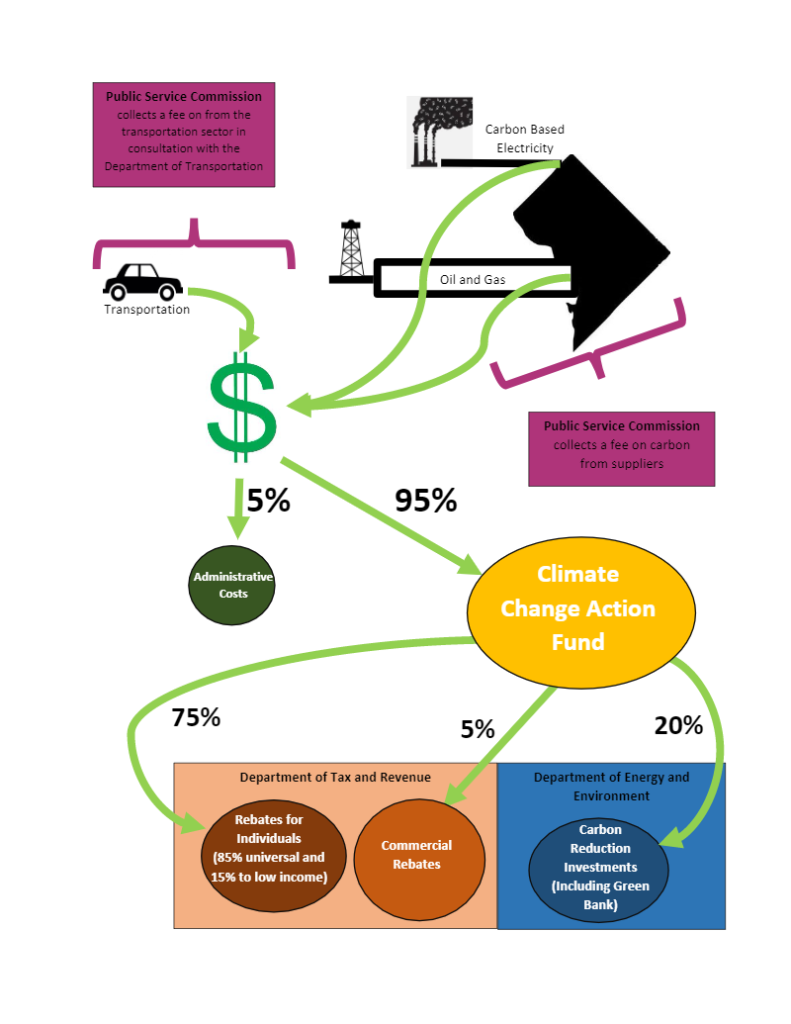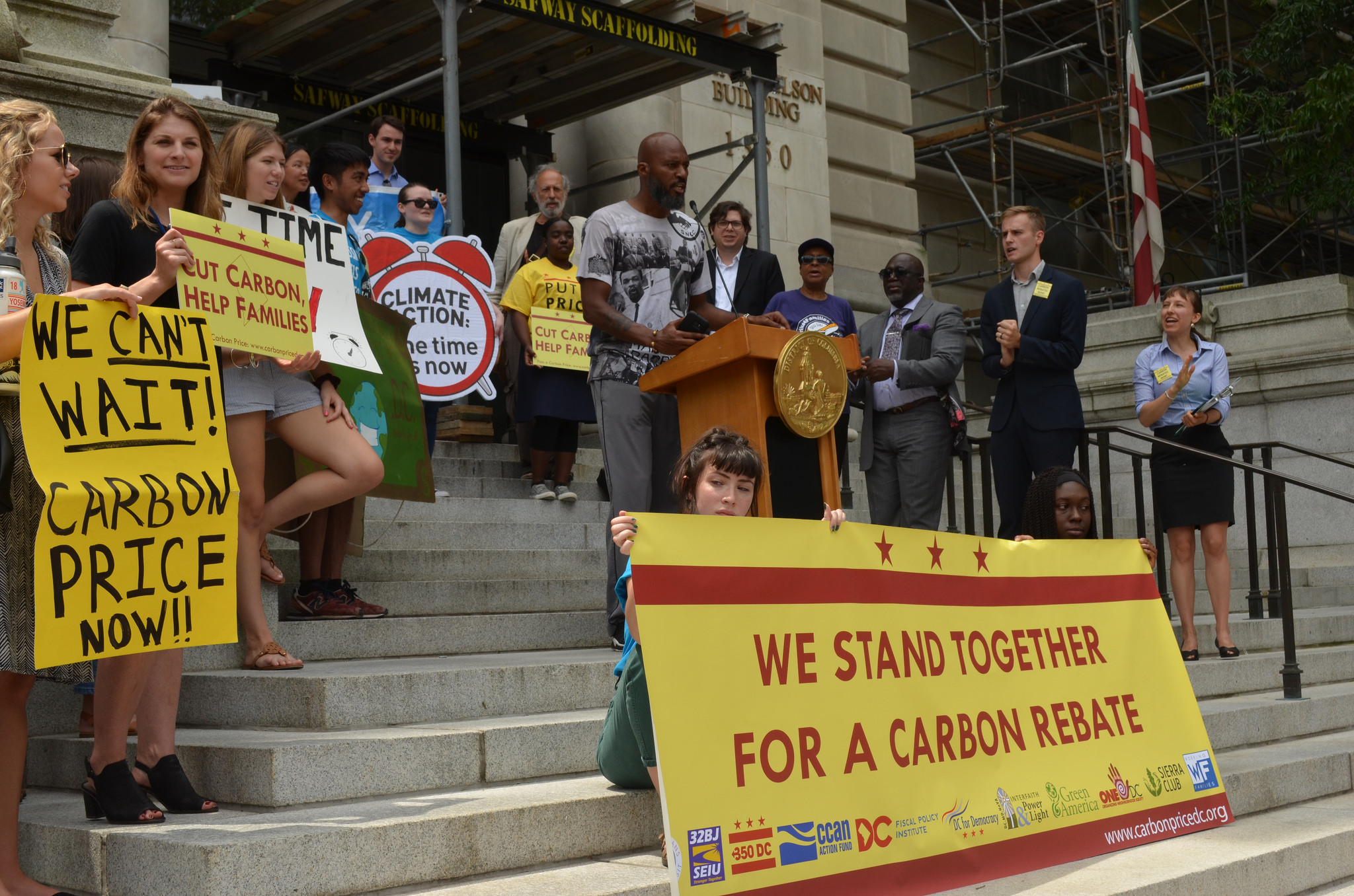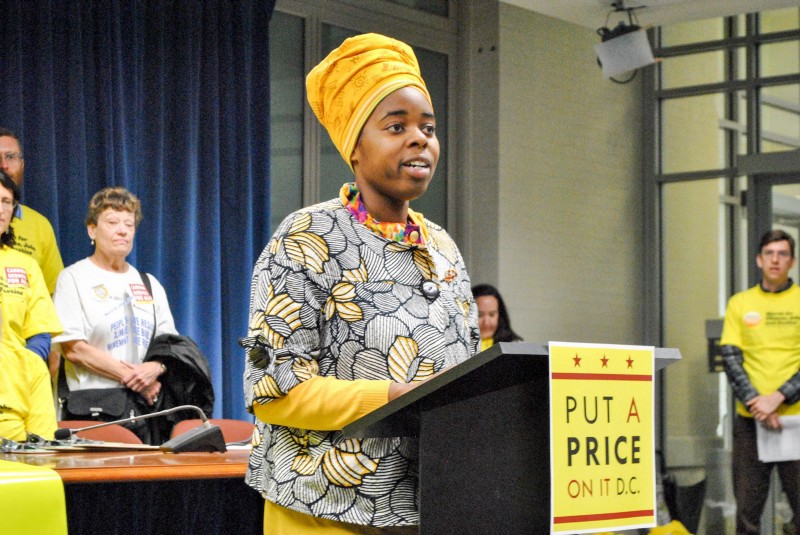Proponents of a carbon fee proposal urged a District of Columbia city council member on Tuesday to strengthen her draft climate bill to make it more effective in cutting carbon emissions.
D.C. Council member Mary Cheh (D) is floating a draft proposal that includes a starting fee of $10 per ton of carbon pollution that increases to $100 per ton by the year 2038.
At a press conference on Tuesday outside the city hall building in Washington, activists said Cheh’s draft bill is heading in the right direction but insisted the price is too low to effectively cut carbon in line with the city’s commitment to the Paris climate agreement.
As an alternative, environmental leaders pointed to their own legislative proposal that begins with a $20 per ton tax and increases to $150 per ton by 2032. The proposal — drafted by a coalition called Put A Price On It D.C. — offers rebates for the majority of all revenue collected to D.C. residents in an economically transparent and equitable way.
The coalition’s alternative plan would charge polluters for their carbon emissions and rebate a large part of the revenue back to residents of the District. The carbon pricing plan would target the transportation, home heating, and electric power sectors.

Individual residents, for example, would not have to pay a separate carbon-related charge every time they fill up their car with gasoline. And the rebate portion of the legislation would result in most residents getting back much of what they may spend in higher home heating or electric bills due to the legislation.
Lawmakers have introduced comparable legislation in several Northeast states. The proposal also has similarities to a decade-old climate action plan tax in Boulder, Colorado where a tax is levied on city residents and businesses and is based on the amount of electricity they consume.
The activists, including more than 100 environmentalists and community leaders, also emphasized that Cheh’s draft plan needs a stronger rebate feature to protect low- and moderate-income households.
Under to the coalition’s proposal, the average family would receive a $500 annual rebate in the first year of the program and $1,920 annual rebate by 2032. Low-income families would receive a $900 annual rebate in the first year and $3,330 annual rebate by 2032. Seventy-five percent of D.C. residents would see their net incomes increase, according to the coalition’s proposal.
Cheh, who chairs the D.C. Committee on Transportation and the Environment, floated a carbon pricing draft outline to environmental and business leaders in May. She is hoping to introduce a completed bill in July for the full council to consider.
“I’m calling as a faith leader for polluters to take responsibility for the harm that their pollution is causing for the ‘least of these,'” Rev. Danté King from Forward Church and director of community engagement at the community solar nonprofit Groundswell said Tuesday in a statement. “A fair and equitable carbon price policy — one that includes a progressive rebate — would reflect our city’s values and become a source of hope in our warming world.”
The District of Columbia has a goal to reduce greenhouse gas emissions by 50 percent by 2032. In June 2017, D.C. Mayor Muriel Bowser pledged to uphold the goals of the Paris climate accord by reducing citywide emissions by 80 percent by 2050.
According to the coalition, the District of Columbia is not on a path to meet those goals. They contend their proposal would reduce carbon emissions 23 percent by 2032, putting the District on track to achieve its climate goals.
“District residents and leaders have been asking for a carbon fee for over three years, and we expect a strong bill introduced before summer recess,” Camila Thorndike, carbon pricing director at Chesapeake Climate Action Network Action Fund, said in a statement.
As with all D.C. legislation, the bill, if passed by the council and signed by the mayor, would be sent to the U.S. House of Representatives and Senate for review. Republicans, who control both chambers, could cite the bill’s stance on fossil fuels as a reason to block the bill.

